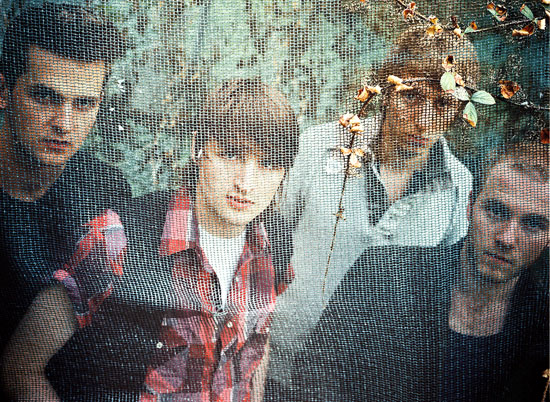In their first ever United States tour, U.K. pop band Wild Beasts is going to give Americans a first-hand look at the musical subtleties that come through in the group’s live performances. The tour will launch in Los Angeles at the Troubadour on Feb. 10. With a recent feature on music blog Pitchfork.com reflecting the band’s upcoming worldwide exposure, singer Hayden Thorpe spoke with the Daily Bruin’s Katie Meschke about the group’s beginnings in rural England, his falsetto voice, and what it takes for British bands to succeed in the United States.
Daily Bruin: Growing up in such a small city, what did it take for Wild Beasts to get things rolling?
Hayden Thorpe: I think we got started through default, really. We grew up in a small town in rural England called Kendal, which is very much a farming town, so we felt it was a long ways from any sort of modern culture and more modern stimulus. It was very traditional, so we sort of sought each other out and found a like-mindedness in appreciating art and music and those exciting things. That’s not the regular career path for people to go down in that type of environment, so we very quickly attached to each other.
DB: Did growing up where you did affect the music you make?
HT: We had to discover music ourselves by looking for it. … We’d listen to records religiously. The international media coverage that we (saw) put Brit-pop up in high esteem … so we thought, well, we don’t have to be doctors to have an important job. We can be in a band and do important things for people.
DB: Is there a specific message you try to get across to audiences through your music?
HT: There’s not really a master plan. I think people love to see themselves reflected ““ there’s nothing more fascinating than seeing what you know. There’s enough substance there to last a lifetime. With my favorite music, I feel like I’m making a discovery, venturing into new waters, and new water is the most refreshing and invigorating.
DB: How did you choose to incorporate your high vocal range into your music?
HT: It wasn’t really a choice. You can’t really choose how you walk, at the end of the day you have two legs doing it. It’s the same with the voice. People want to hear your natural expression, and that is mine. We want to be uninhibited and expressive and honest.
DB: What is it about your music that stands out to your audience?
HT: It’s hard to envisage your audience and how your music entered their world and attached itself to them; it’s one of those mysterious and beautiful things. I think the U.S. is amazing in the fact that it has that great established influential sites like Pitchfork, and the huge art scene where it’s important to have integrity, artistry and credibility, and to be challenged in a way. All those factors make for good music. I think it’s a crowd that knows good music when it hears it.
DB: Speaking of Pitchfork, how has your recent feature on the Web site affected your career?
HT: Every little bit of exposure like that is a brick in the wall that will eventually build the house. With Pitchfork, maybe that enables you to build a wall rather than just lay one brick, so it’s a way to fast forward a bit. It’s not really a landslide ““ it doesn’t work like that for bands like us. We need to do the ground work; we don’t fit into the template picture allowed for overnight success. We’re perhaps not digestible enough to pass through so quickly. People have to chew a bit more to appreciate the taste.
DB: As a British band, what do you think it takes to become well-known in the United States?
HT: For some time now, a lot of British bands have been stuck in a real rut. … I think it’s slowly going out of the dark ages in that sense. Slowly, the tides are changing. I’m hopeful. You’ve got to stay on your toes, and for a long time British music didn’t, it rested … and sat back. British music for a long time stopped being exciting, but it’s an essential factor. Music has to challenge and confront, to take risks, and I think we certainly aren’t scared of pushing people off because we know if we put certain people off, we put the right people on. It also makes a huge difference to go and show your face somewhere and to prove you can do it. There’s a British saying, “the proof is in the pudding,” so we’re going to go out there and make people pudding.
E-mail Meschke at kmeschke@media.ucla.edu.
